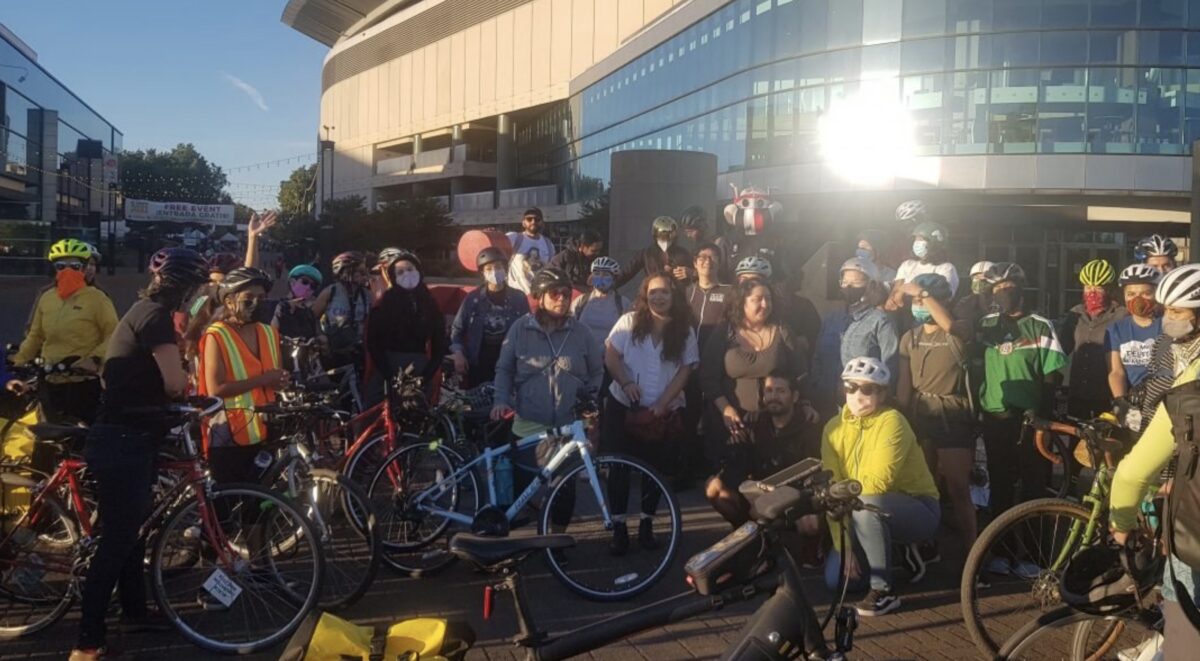
(Photos: Maritza Arango/BikePortland)
A story inspired by the community that got together for September’s Chingonas bike ride.
In need of a more strengthened biking community that includes Latinx women, I started following the Chingonas social media and finally got to join a monthly ride to commemorate Hispanic Heritage Month.
The Mes Nacional de la Herencia Hispana is celebrated from September 15 to October 15 to recognize the contributions and influence of Hispanic Americans to the history, culture, and achievements of the U.S.
I have always asked myself so many questions about the idea of being hispanic: Who is hispanic? Who is not? Why? Since I moved back to the U.S. in January of this year, I have been meeting a lot of people in the Latinx community that identify themselves as hispanic and others that don’t, confirming my idea that hispanidad is cultural and not geographic. Portland is a predominantly white city and the Latinx community are commonly marginalized from various scenes, including the biking community.
Before I tell you all about the ride, I want to make sure that you understand how I see the Latinx community in the U.S. and why I defend our way of expressing ourselves.
I’ll start this story by providing some context about language history. Language is and has always been a cultural interpretation of the world that has evolved, changed and transformed itself over time. From now on you will read this story in Espanglish, a cultural linguistic expression that Latinx communities living in the United States have used for decades and that a lot of the immigrant families consider their only way of communication.
Some of us use Espanglish because it is easier to describe a situation that involves feelings or things that might not have a translation. Some might just do literal translations to expressions like, “I’ll call you back”, saying, “te llamo para atrás”. And you know what? It is OK, da lo mismo! If you are a fellow Espanglish speaker, please just say it how you can and be proud of your beautiful bilingual brain. If you are not an Espanglish speaker and think that the existence of it is an abomination, please take this as a personal invitation for you to reflect on the deeper reasons why Espanglish bothers you so much. (If my explanation about language is not clear enough, this 34 second-video explains it perfectly.)
Now back to the ride…
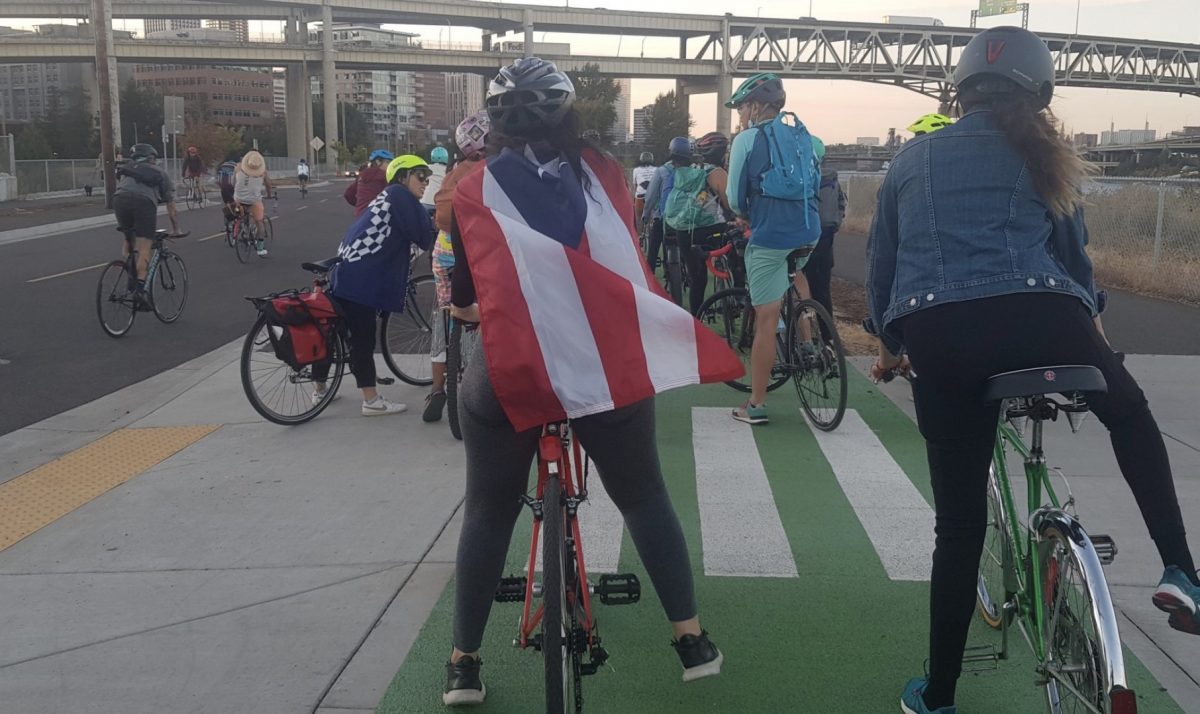
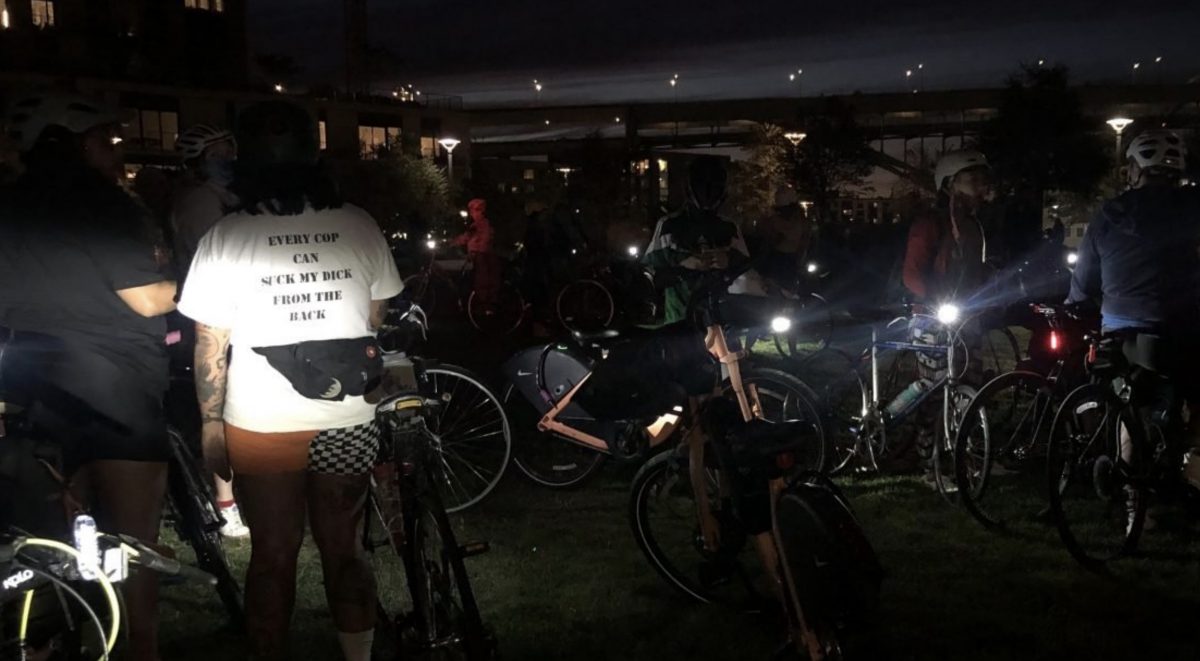
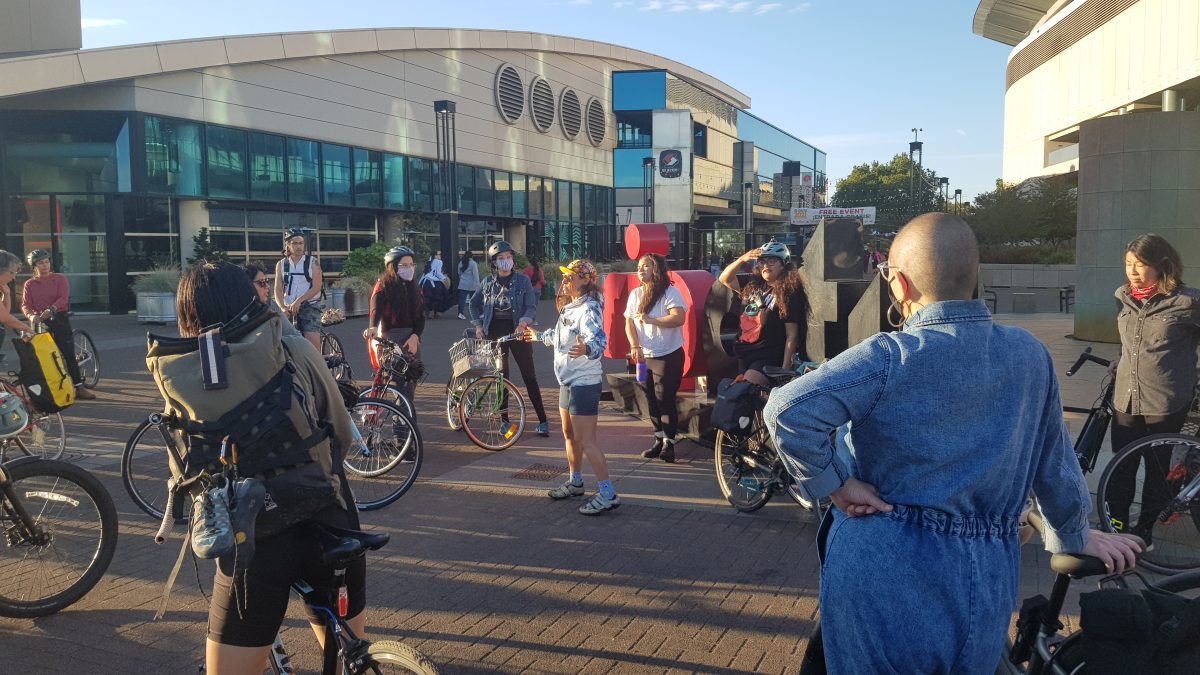
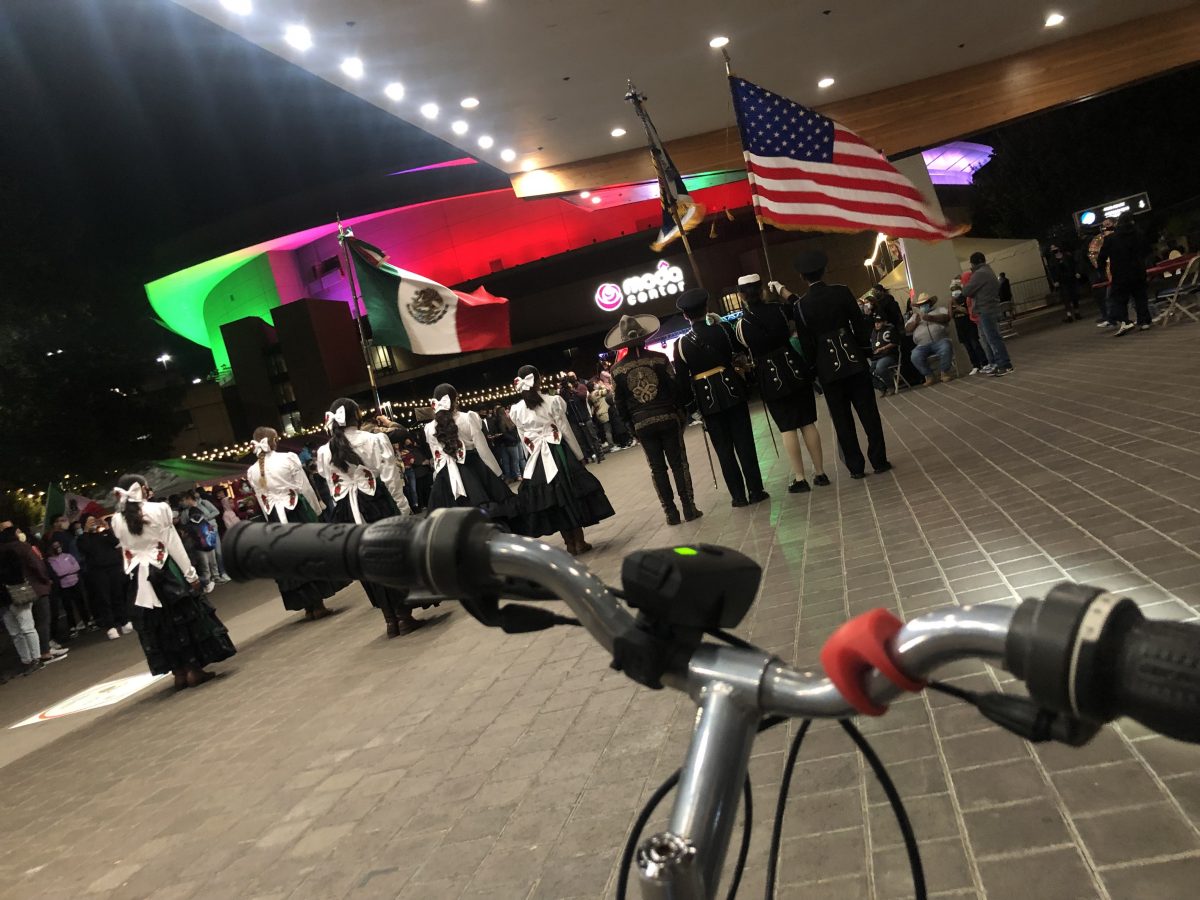
This is what the Chingonas wrote on the invitation to the ride: “The day of September 15 is significant because it is the anniversary of independence for Costa Rica, El Salvador, Guatemala, Honduras and Nicaragua. In addition, Mexico and Chile celebrate their independence on September 16 and September 18, respectively. We also recognize that Puerto Rico is still not free and honor & stand with them in their lucha for independencia.”
“When you are comfortable as a biker in a community, you don’t even need to communicate with words or gestures. It is something you feel.”
The ride started at the Moda Center, the same place where the Mexican official “independence” celebration was taking place that day. We were a group of more than 50 Latinx and a couple of other BIPOC bikers. I could tell that the majority were Mexican and women but we also had a huge representation of different countries like Colombia, Chile, Cuba and Nicaragua, among others. The destination was kept secret, but tacos were announced to be part of the celebration for reaching the 10-mile goal. During the ride there was a lot of Latinx music playing loud, it was a fun party ambiance with a slow, easy and beginners-friendly pace. You could feel the community vibe whenever someone needed something. The Chingonas were always around keeping everyone safe and making sure that the bikes and bikers were running smoothly.
I felt so empowered by the community that I even did some intersection “corking” during the ride to help organizers keep everyone safe. This new experience made me believe that when you are comfortable as a biker in a community, you don’t even need to communicate with words or gestures. It is something you feel and makes you pedal with the flow. In this case, it was primarily a reggaeton flow (wink para las DJs del perreo intenso)!
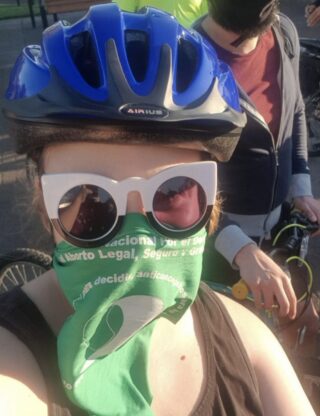
Let’s get back to the reason for the ride… Did you notice I used quotes when I mentioned hispanic countries being independent? I use quotes because no nation is free until everyone is free. Are women, queer, non-binary, indigenous, disabled, trans (among many other marginalized humans) communities free? The answer is easy – no, we are not!
Earlier this month, Mexico’s Supreme Court ruled criminalizing abortion is unconstitutional and for that I say Viva Mexico, cabronas and viva Mexico chingonas! I attended this ride wearing a green bandana/pañuelo verde, a symbol that has taken so much power in the Latinx feminist movements that stands for the ones who demand governments to stop ruling over women’s bodies. Argentina started with the ola verde, followed by Chile, Mexico, Colombia and many others. Nos sembraron miedo, pero nos crecieron alas!
I have nothing to celebrate. I am a anti-colonialist feminist that believes that colonialistic ideas like the “Hispanic Culture” (refering to every culture colonized by the Spanish crown and that now speaks Spanish and kisses their virgins and temples) is a monolitic culture that represents us all. None of us is free until all of us are free. Until we believe that our heritage is Hispanic and not indigenous, we will not be free. Until we all have equal access to resources, we will not be free. Until we don’t have the power to decide over our bodies, we will not be free.
Vamos a mirar para adelante y seguir pidiendo por la autonomía de nuestros cuerpos, por el safe public space para las mujeres en bicicletas, for the Espanglish to be respected in the communities y por más chingonas que sigan working for visibility of the Latinx’s in Portland.
I am looking forward to participating in more Chingonas’ ride! In the meantime I’ll continue to follow their amazing work on social media. If you also wanna join them, reach out to the Chingonas on Instagram and say hola. Se merecen muchas porras por el trabajo que hacen para la comunidad.
— Maritza Arango, @arango_mari on Instagram, Twitter and TikTok.
— Get our headlines delivered to your inbox.
— Please support this independent community media outlet with a one-time contribution or monthly subscription.
Learn more about decolonizing hispanic culture and Hispanic Heritage Month:
— @IntersectionalEnvironmentalist: Hispanic Heritage Month post on Instagram
— The New York Times: Does Hispanic Heritage Month Need a Rebrand?
— NBC News: Racist, brutal past or Hispanic history?
